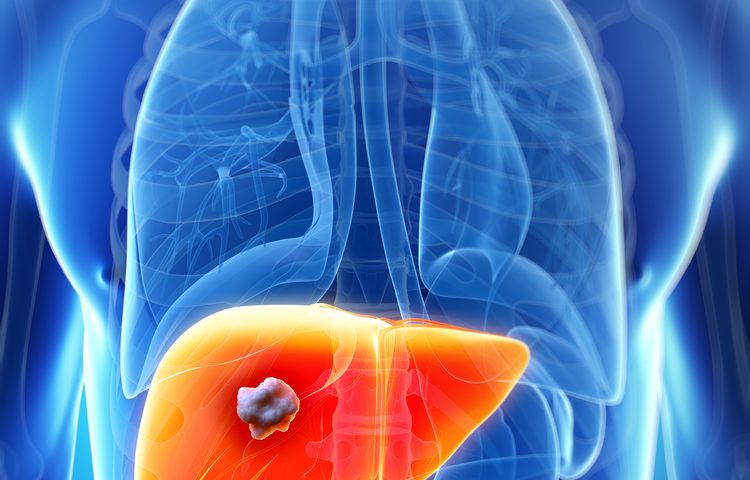The protein VEGF-A, which is involved in the formation of new blood vessels, often predicts poor prognosis when found in primary tumors. But researchers have now revealed that that may not be the case for liver metastasis derived from colorectal cancer.
Their study shows that high levels of VEGF-B, which resembles VEGF-A, in liver metastasis predicts better prognosis in patients who took the anti-VEGF-A therapy Avastin (bevacizumab) before undergoing liver resection.
The findings, published in Molecular Cancer Therapeutics in the study “Expression of Genes Involved in Vascular Morphogenesis and Maturation Predicts Efficacy of Bevacizumab-Based Chemotherapy in Patients Undergoing Liver Resection,” suggest that VEGF-B levels in liver metastasis could be used as biomarker to identify patients who should undergo surgical removal of the metastasis and those who should receive other treatment approaches.
Combining Avastin with chemotherapy prior to surgical resection of the metastasis has been shown to improve the survival of patients with metastatic colorectal cancer. But because most patients have a recurrence, it is critical to identify new biomarkers that can predict which patients are most likely to benefit from resection of colorectal liver metastasis and achieve a durable response, and those who should undergo other treatments.
Researchers at the Norris Comprehensive Cancer Center at the University of Southern California, in collaboration with a team from the Medical University Vienna, sought to find potential biomarkers that could improve tailored treatments for these patients.
The researchers analyzed samples from 125 patients who received three months of neoadjuvant (before surgery to remove the metastasis) and three months of adjuvant Avastin-based chemotherapy and underwent liver resection.
After a median follow-up of 3.8 years, the researchers found that patients with high levels of VEGF-B in the primary tumor before treatment were associated with a poorer prognosis, with patients showing a three-year survival rate of 46% compared to the 85% seen in patients with low levels of VEGF-B.
But interestingly, the prognostic significance of VEGF-B within the liver metastasis was the opposite of that seen in the primary tumor. In patients exhibiting high levels of VEGF-B in liver metastasis following Avastin-based chemotherapy, the prognosis was better than in those with low levels of VEGF-B (8.3 months vs. not reached).
“For the first time, we were able to demonstrate, in surgically resected metastases, that treatment with bevacizumab in combination with chemotherapy before metastasectomy also changes the clinical significance of the growth factors as potential biomarkers,” Stefan Stremitzer, one of the lead investigators from MedUni Vienna’s Department of Surgery, said in a news release.
Up to 25 percent of patients with liver metastasis from colorectal cancer can be cured with a multimodal approach that includes surgical removal of the liver metastasis. But the researchers believe that with the aid of novel biomarkers, this percentage could be increased.
VEGF-B, in particular, could be used to predict those patients who are likely to benefit from surgery and those who should pursue other lines of therapy. Nonetheless, the team points out that additional clinical studies are required to validate their findings.
“Since VEGF-A and its blockade with bevacizumab also play a major role in other cancers, such as ovarian cancer and breast cancer, VEGF-B could also serve as a new predictive biomarker and a target for new drugs for these cancers as well,” Stremitzer said. “It might be that chemotherapy could also change the clinical significance of other biomarkers.”


